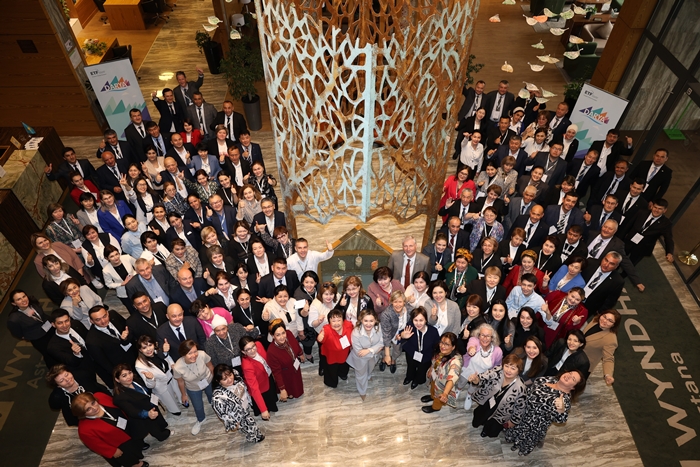From 15 to 19 April, over 250 educators will participate in a week of training events organised by the European Union (EU) in Astana, Kazakhstan. The training, targeting trainers from five countries, will introduce participants to SCAFFOLD, an EU-developed deck of cards designed to assist educators in creating effective learning activities. Special attention will be given to equipping trainers to deliver further training to their peers, European Training Foundation (ETF) reports.
SCAFFOLD is a tool developed by the European Training Foundation (ETF) and the Joint Research Centre of the European Commission (JRC). This a deck of 102 cards, enabling educators to design and implement learning activities comprehensively, from planning to assessment. The SCAFFOLD card deck and materials are being made available in all national languages of Central Asia.
The week’s schedule, organised under the European Year of Skills, includes training sessions for national trainers from Central Asia (15-17 April), followed by a day of training for trainers from Kazakhstan (18 April), and concluding with training for educators from all over Kazakhstan (19 April).
This initiative forms part of DARYA, the EU’s flagship regional project supporting education, youth employment, and inclusive skills development in Kazakhstan, Kyrgyzstan, Tajikistan, Turkmenistan, and Uzbekistan.
Further activities following the Astana week will include training, pilot actions in schools and dissemination of SCAFFOLD with the aim to reach out to more than a thousand educators in Central Asia.
In 2024, a regional competition named “SCAFFOLD – competences for life” will motivate educators in Central Asia to integrate SCAFFOLD into their teaching methodologies, in line with ETF’s efforts to promote key competences including green skills development and sustainable growth as part of the European Green Deal.
The European Training Foundation (ETF) is the European Union agency that supports neighbouring countries in reforming their education, training, and labour market systems. It currently collaborates with 28 partner countries, mainly in the context of EU enlargement and neighbourhood policies. It is headquartered in Turin, Italy.
DARYA (Dialogue and Action for Resourceful Youth in Central Asia) is the first EU-funded regional project focusing entirely on measures that support inclusive and labour market relevant skills development opportunities for young people in Kazakhstan, Kyrgyzstan, Tajikistan, Turkmenistan and Uzbekistan. With a budget of €10 million, the project operates at two main levels: nationally, by stimulating the development of quality and inclusiveness in education, training, and the labour market in the five countries; regionally, by strengthening participation and mutual dialogue among Central Asian countries. The five-year project (2022-2027) is implemented by the European Training Foundation (ETF), a specialised agency of the European Union, based in Italy. ///nCa, 16 April 2024
